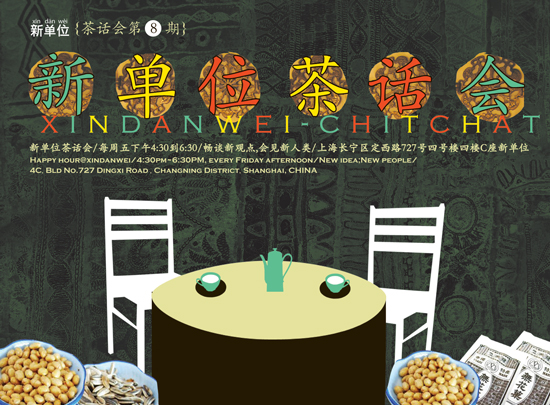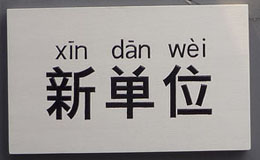
[lang_en]
Xindanwei Chitchat edition 8: Wokai’s talk
Time: 16:30 – 18:30 June 4, 2010
Microfinance is the business of making very small (“micro”-sized) loans to very poor people who would otherwise have no access to capital, so that they can start their own small businesses. These borrowers, or entrepreneurs, repay the loan with interest over the course of 6-12 months. Muhammed Yunus pioneered microfinance in the 1980s, with a focus on Bangladesh and India, for which he was eventually awarded the Nobel Peace Prize in 2006. The beauty of microfinance is that it is not only socially viable but also commercially viable because it helps poor people to help themselves, creates new jobs, and achieves sustainability.
Despite having spread to most developing countries (in Southeast Asia, South America, and Africa), microfinance is a very nascent industry in China. The Chinese government did not allow microfinance institutions (“MFIs”) to charge higher interest on loans than those of local Chinese banks. However microfinance is not simply lending people money, but also includes travelling to the most rural areas of China to access borrowers, teaching them how to start and run small businesses, and tracking their progress regularly – all expensive work. Therefore in order for microfinance to be sustainable, it needs to charge higher interest rates. Still, it remains cheaper than the alternatives (loan sharks) and, more importantly, Chinese banks do not provide any loans to poor people as it is not profitable and their models are based on collateral. In any case, MFIs would not survive in China with their interest rates capped.
As the Olympics drew closer, local Chinese banks began closing down rural branches and moving towards cities. This made it even more difficult for rural Chinese to access capital, a growing problem which the government needed to address, so in 2004 the government lifted interest rate restrictions and allowed MFIs to charge up to four times the interest rates of local banks. Thus 2004 was the year that international microfinance entered China. Today, local banks charge 4-5% interest on their loans; now MFIs can charge 16-20% interest.
In the spring of 2007, Courtney and Casey started Wokai, which means “I Start” in Chinese and conveys our mission to help people start new lives by founding their own businesses. By signing up on our website (www.wokai.org), one can view specific borrower profiles entailing a picture, the borrower’s dollar requirement and for what purpose, and more, and then choose which borrower to help. Wokai fills a niche in Chinese microfinance because it is the first international person-to-person microfinance organisation that connects individual philanthropists around the globe directly with specific micro-entrepreneurs that they choose to fund in China, via our website. Wokai meets the growing demand for micro-loans by providing MFIs with the capital needed to make loans.
Still there remains the issue that one cannot repatriate cash and therefore the loan cannot be taken out of China. So instead of relying on loans, Wokai relies on donations. After the borrower repays the loan, the money is not returned to the contributor, instead the contributor chooses another borrower from the website to whom the loan should help next. The loan is recycled out and so each donation goes much further than the average proposal.
Wokai has grown to include 9 chapters in San Francisco, Seattle, New York City, Beijing, Hong Kong, Shanghai, Los Angeles, Boston, and Toronto; 200 interns, volunteers and advisors; 11 corporate sponsors and 2 NGO field partners in Inner Mongolia and Sichuan. With the help of these supporters, Wokai is now a 501(c)(3) non-profit organisation in the US with a Representative Office in China, and currently in the process of being registered as a non-profit in Hong Kong. It has raised USD153,000 online from 1,000 contributors since launching, and has enabled 300 recipients in rural China to start small businesses. Wokai is now a ‘movement’ of sorts helping to raise awareness of entrepreneurial solutions to poverty amongst American students, as well as solving poverty itself. Wokai has also become a media darling, having been featured in TIME, the San Francisco Chronicle, Newsweek, China Daily, CCTV News, and Phoenix, and CEO Casey was interviewed in November by Bloomberg Asia’s Bernie Lo, TVB Channel and South China Morning Post in Hong Kong.
[/lang_en]
[lang_cn]
新单位茶话会第8期:Wokai.org
时间: 6月4日 16:30 – 18:30
费用:免费
小额贷款是一种将非常小额度的贷款聚集起来借贷给贫困人口的一种商业模型. 贫困人口往往有很大困难筹集资金,而资金是决定他们能否建立自己的小型商业, 脱贫致富的关键. 这些借贷者,或企业家,在借款后的6到12月还清本金和利息. Muhammed Yunus 在80年代率先在孟加拉国和印度推出了小额贷款, 并于2006年 以此获得诺贝尔奖. 小额贷款的魅力在于它不仅仅是一个社会学的美好蓝图. 它 是一个从商业学角度完全可行的做法,因为它帮助穷人帮助自己, 创造就业, 实现 经济长期发展.
小额贷款在南非,南美,和非洲等发展中国家都已迅速传播开来. 它在中国却还是 一个萌芽中的产业. 目前,中国政府还不允许小额借贷机构收取高于本地商业银 行的利率.但是小额贷款的成本却远远高于本地商业银行. 除了提供贷款, 小额借 贷机构常常要到中国最偏僻的地区访问借贷者, 教他们如何创办自己的小型商业, 以及规划还清贷款. 也就是说, 小型借贷机构要生存,就必须收取更高的利率. 即 使这样, 小额贷款远比起本地的高利贷机构便宜. 更加重要的是, 国家批准的本地 商业银行以借贷担保为商业模型. 由于小型贷款风险更高,回报更低, 它们目前并 不向穷人提供小型贷款的服务. 总体来讲,小型借贷机构要在中国发展,就一定要 有更为灵活的利率体系来支持.
为了筹备奥运会, 中国的本地银行都纷纷将网点转向城市. 这给中国农村人口贷 款进一步增加了难度.在2004年, 中国政府取消了对小额贷款机构的限制, 并允许 它们收取相当于本地商业银行四倍的利息. 即此, 国际小额借贷于2004年正式进 入在中国。今天, 本地商业银行收取百分之4到5的利率,也就是说,小额借贷机构 可收取百分之16到20的利率。
2007年春天,Courtney 和 Casey 创办了”我开”,象征着鼓励借贷者开创 自己的小商业和新生活的美好寓意.只需在”我开”(www.wokai.org)上注册一个账户,每个人都可看到借贷者的照片,家庭情况,申请款项的额度,用途, 并选择想要帮助的对象.”我开”在中国的小型借贷领域扮演着独特的角色, 因为它是第一个让全世界资助者们直接”面对面”看到中国小额贷款申请人真 实生活情况的平台.”我开”把世界资助者们捐助的资产转为小型贷款,送到 中国农民的身边.
现今投资无法从中国转回境外的问题依然存在.因此,”我开”以捐款而非借 款的形式运行.当借款人还清借款后,款项并不回到资助者手中.资助者通 过”我开”网络选择下一位资助人.借款以这种方式依次循环.因此,每项捐 款的实际影响力都大大超过了捐款的面值.
“我开”已经成长为拥有旧金山,西雅图,纽约,北京,香港,上海,洛杉 矶,波士顿,多伦多九个分部,200名志愿者”我开”,11个商业资助集团,及 2个合作伙伴NGO在内蒙古和四川的大家庭.在这些支持下,已经在美国成功 注册为501(c)(3)非盈利组织,并已开始在香港申请注册。成立以 来,“我开”已经通过网路平台融资超过15万美金,并帮助超过 300 名中国 农民建立了自己的小型商业。”我开”已经成为美国学生讨论如何运用企业家 精神解决贫困问题的热门话题。“我开”也渐渐成为媒体关注的焦点,先后被 时代周刊,旧金山日报,新闻周刊,及中国日报及 CCTV 新闻等媒体采访。 CEO Casey 今年11月接受香港媒体 TVB, 南华早报及 Bloomberg Asia 的采 访。
[/lang_cn]
